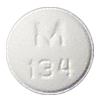How to buy Ketorolac (Toradol) without prescription in 2024?
Ketorolac Online Prices
How much does Ketorolac costs in online stores in 2024? Ketorolac, a popular medication, has varying costs in online stores, influenced by several factors. The price of Ketorolac largely depends on the specific online store, the country where the store is based, and the nature of the pills themselves. These factors collectively contribute to the wide range of prices observed for this medication.
Firstly, the choice of online store plays a crucial role in determining the cost. Online pharmacies operate under different business models and regulatory environments, leading to price variations. For instance, stores based in countries with stricter pharmaceutical regulations or higher operational costs may offer Imitrex at a higher price compared to those in countries with more lenient regulations or lower overheads.
Another significant factor is the country where the online store is located. The cost of pharmaceuticals varies greatly across countries due to differences in healthcare policies, taxation, and the degree of competition in the pharmaceutical sector. For example, countries with universal healthcare systems might offer medications at lower prices than countries without such systems. Moreover, import and export regulations, currency exchange rates, and international shipping costs can also affect the final price of Imitrex when purchased from an overseas store.
Lastly, the type of pills - whether brand or generic - is a primary determinant of price. Brand-name pills, manufactured by the original patent holder, typically costs more due to research, development, and marketing expenses. In contrast, generic versions, which contain the same active ingredients and are equally effective, are usually cheaper. Generic medications cost less because manufacturers do not have the same development and marketing expenses as the original brand.
To illustrate these points, a table with prices for generic Ketorolac from the online store could be provided as an example. It's important to note that these prices are subject to change and may vary over time due to market dynamics and other influencing factors.
Ketorolac 10mg
| Package | Per Pill | Price | Savings |
|---|---|---|---|
| 10mg × 60 pills | $0.75 | $45.14 | |
| 10mg × 90 pills | $0.63 | $56.88 | $10.83 |
| 10mg × 120 pills | $0.57 | $68.62 | $21.67 |
| 10mg × 180 pills | $0.51 | $92.09 | $43.34 |
| 10mg × 270 pills | $0.47 | $127.31 | $75.84 |
| 10mg × 360 pills | $0.45 | $162.52 | $108.35 |
>> Visit Online Pharmacy <<
Can I buy Ketorolac tablets over the counter?
- There are various medications available for migraine treatment, including painkillers, herbal remedies and prescription triptans
- Some painkillers such as acetylsalicylic acid, paracetamol, ibuprofen and naproxen are available over the counter
- Herbal migraine tablets such as Dorisol and Neodolor are also available over the counter
- Migraine suppositories such as Dolormin Migraine and Migraine Kranit are available over the counter and are suitable for people with nausea or vomiting
- Triptans such as Sumatriptan, Naratriptan and Almotriptan can be purchased over the counter, but only after an initial diagnosis by a doctor. Injection forms remain available on prescription
Some painkillers for the treatment of headaches and migraines can be bought over the counter from pharmacies. These include well-known active ingredients such as acetylsalicylic acid, paracetamol, naproxen and ibuprofen. Some migraine tablets that are available over the counter are relatively new on the market. A combination of acetylsalicylic acid, paracetamol and caffeine has been available since 2005 under the name Thomapyrin INTENSIV. It is intended to relieve acute migraine pain. With Thomapyrin TENSION DUO, the supplier launched further migraine tablets on the market without a prescription. The medication combines the painkiller ibuprofen with caffeine to provide rapid pain relief.
In dubious online pharmacies, sufferers can now even obtain supposedly prescription medication for migraines without a prescription. However, this is risky. Migraines should always be treated together with a doctor. In this way, you can receive targeted medication without endangering your health.
Recently, there have also been some herbal, over-the-counter migraine tablets on the market. Painkillers such as Dorisol and Neodolor are designed to provide relief. A special combination of herbal substances is used for this purpose.
If the migraine manifests itself with headaches and nausea, tablets are often difficult to keep down.Migraine suppositories, which can be bought without a prescription, may be suitable here.The painkiller Dolormin Migrane, for example, is available over the counter and also as a suppository.
Dolormin Migraine Suppositories use the active ingredient ibuprofen and are suitable for the acute treatment of migraine attacks with and without aura.Migraine Kranit suppositories offer an alternative migraine suppository that is also available over the counter from pharmacies.The active ingredient used here, phenazone, is also suitable for treating acute migraine headaches.
However, painkillers in liquid form have the fastest effect. Effervescent tablets are very suitable for this.The effervescent tablets Aspirin Migraine are available over the counter.They contain the active ingredient acetylsalicylic acid and can provide relief from migraine headaches.
Which migraine tablets require a prescription?
Some common painkillers are available over the counter from your pharmacy. However, these are only available in a safe dosage. In higher doses, these migraine tablets also require a prescription. For moderate migraine headaches, painkillers for migraines that you can buy over the counter are often sufficient.
Over-the-counter painkillers for migraines:
Acetylsalicylic acid
Has a pain-relieving effect on mild migraine attacks and can also improve possible accompanying symptoms such as nausea and sensitivity to light and noise.
Ibuprofen
Also suitable for relieving mild migraine headaches. It can also reduce nausea and sensitivity to light and noise caused by migraines.
Naproxen
Naproxen is also an over-the-counter painkiller that is considered effective for migraines. The active ingredient carries the lowest risk of cardiovascular disease, but is not suitable for kidney disease.
Paracetamol
Paracetamol is also available over the counter and can relieve the pain of mild migraine attacks. The effect lasts for about four to six hours.
If you experience intense migraine headaches or frequent attacks, over-the-counter painkillers are no longer sufficient for treatment. It is important that you take your pain seriously and find a suitable migraine treatment. To do this, you should consult a doctor. Together you will find the ideal migraine treatment for your individual health condition. Migraine sufferers are often prescribed triptans.
The most commonly used triptan since 1992 is called sumatriptan. The effect of the drug has already been well researched, which is why migraine tablets containing sumatriptan are also available over the counter. Since the end of 2020, it has been possible to buy 50 mg sumatriptan tablets over the counter in pharmacies.
However, sumatriptan should not be used without accompanying medical treatment. It is important that a doctor determines in advance whether a migraine is actually present or whether pre-existing conditions may affect the suitability of sumatriptan. To this end, information should be provided on the correct use of the triptan.
If triptans are taken too frequently, they can even make the headaches worse and, in combination with certain concomitant illnesses, taking them can put your health at risk. It is therefore important to always consult a doctor for migraine treatment.
Buying Ketorolac over the counter for migraines?
But what are triptans anyway and why is it possible to buy some triptans over the counter, while other triptans for migraines require a prescription? Triptans are medicines that are used in pain medicine. They are used in acute migraine attacks to constrict the dilated blood vessels and inhibit inflammatory reactions.
This is achieved by reducing the release of certain endogenous substances that contribute to these inflammatory reactions. A maximum of two tablets should be taken per day and a maximum of ten tablets per month.
There are also risks associated with taking triptans. For example, an overdose can lead to worsened headaches - so-called drug-induced headaches. It is possible to buy certain triptans without a prescription. In addition to sumatriptan, naratriptan and almotriptan are also freely available from pharmacies. However, even these triptans for self-medication may only be dispensed by the pharmacist if an initial diagnosis of migraine has been made by a doctor. In addition, triptans are only available over the counter for oral administration. Sumatriptan injections, which have proven to be particularly effective to date, are still only available on prescription.
Self-diagnosis can seriously endanger the health of the user. It should be noted that triptans are not suitable for every migraine sufferer. Even if you can obtain triptans without a prescription, suitability is not guaranteed. Taking other medication and other illnesses can impair the effectiveness of the medication. In the worst case, taking triptans without medical supervision can have serious health consequences. You should also note that triptans are usually recommended for severe migraine attacks and the choice of the right triptan is also crucial for the desired benefit.
What is Ketorolac?

Ketorolac is used for the short-term treatment of moderate to severe pain in adults. It is usually used before or after medical procedures or after surgery. Reducing pain helps you recover more comfortably so that you can return to your normal daily activities. Ketorolac is a nonsteroidal anti-inflammatory drug (NSAID). It works by blocking your body's production of certain natural substances that cause inflammation. This effect helps to decrease swelling, pain, or fever.
Ketorolac should not be used for mild or long-term painful conditions (such as arthritis).
How to use Ketorolac
Read the Medication Guide and, if available, the Patient Information Leaflet provided by your pharmacist before you start taking Ketorolac and each time you get a refill. If you have any questions, ask your doctor or pharmacist.
Take Ketorolac by mouth, usually every 4 to 6 hours with a full glass of water (8 ounces or 240 milliliters), or as directed by your doctor. Do not lie down for at least 10 minutes after taking Ketorolac. If stomach upset occurs while taking Ketorolac, take it with food, milk, or an antacid.
Dosage is based on your medical condition and response to treatment. To reduce your risk of stomach bleeding and other side effects, take Ketorolac at the lowest effective dose for the shortest possible time. Do not increase your dose, take it more frequently, or take it for longer than 5 days. If you still have pain after 5 days, talk with your doctor about other medications you may use. Do not take more than 40 milligrams in a 24-hour period.
If you are taking Ketorolac "as needed" (not on a regular schedule), remember that pain medications work best if they are used as the first signs of pain occur. If you wait until the pain has worsened, the medicine may not work as well.
Tell your doctor if your condition worsens or if your pain is not relieved.
Ketorolac Side Effects
Upset stomach, nausea, vomiting, constipation, diarrhea, gas, dizziness, or drowsiness may occur. If any of these effects persist or worsen, tell your doctor or pharmacist promptly.
Remember that your doctor has prescribed Ketorolac because he or she has judged that the benefit to you is greater than the risk of side effects. Many people using Ketorolac do not have serious side effects.
Ketorolac may raise your blood pressure. Check your blood pressure regularly and tell your doctor if the results are high.
Tell your doctor immediately if any of these unlikely but serious side effects occur: fainting, fast/pounding heartbeat, hearing changes (such as ringing in the ears), mental/mood changes (such as confusion, depression), persistent/severe headache, stomach pain, sudden/unexplained weight gain, swelling of the hands or feet, vision changes (such as blurred vision), unusual tiredness.
Tell your doctor immediately if any of these rare but serious side effects occur: easy bruising/bleeding, change in amount of urine, signs of infection (such as fever, chills, persistent sore throat), symptoms of meningitis (such as unexplained stiff neck, fever).
Ketorolac may rarely cause serious (possibly fatal) liver disease. Seek immediate medical attention if you have any symptoms of liver damage, including: dark urine, stomach/abdominal pain, persistent nausea/vomiting, yellowing eyes/skin.
A very serious allergic reaction to Ketorolac is rare. However, seek immediate medical attention if you notice any symptoms of a serious allergic reaction, including: rash, itching/swelling (especially of the face/tongue/throat), severe dizziness, trouble breathing.
Ketorolac Precautions
Before taking Ketorolac, tell your doctor or pharmacist if you are allergic to it; or to aspirin or other nonsteroidal anti-inflammatory drugs-NSAIDs (such as ibuprofen, naproxen, celecoxib); or if you have any other allergies. Ketorolac may contain inactive ingredients, which can cause allergic reactions or other problems. Talk to your pharmacist for more details.
Before taking Ketorolac, tell your doctor or pharmacist your medical history, especially of: asthma (including a history of worsening breathing after taking aspirin or other NSAIDs), bleeding or clotting problems, blood disorders (such as anemia), heart disease (such as previous heart attack), high blood pressure, liver disease, growths in the nose (nasal polyps), throat/stomach/intestinal problems (such as bleeding, heartburn, ulcers), stroke, swelling of the ankles/feet/hands.
Kidney problems can sometimes occur with the use of NSAID medications, including Ketorolac. Problems are more likely to occur if you are dehydrated, have heart failure or kidney disease, are an older adult, or if you take certain medications (see also Drug Interactions section). Drink plenty of fluids as directed by your doctor to prevent dehydration and tell your doctor right away if you have any unusual change in the amount of urine.
Ketorolac may make you dizzy or drowsy. Do not drive, use machinery, or do any activity that requires alertness until you are sure you can perform such activities safely. Avoid alcoholic beverages.
Ketorolac may cause stomach/intestinal bleeding. Daily use of alcohol and tobacco, especially when combined with Ketorolac, may increase your risk for stomach bleeding. Limit alcohol and stop smoking. Consult your doctor or pharmacist for more information.
Ketorolac may infrequently make you more sensitive to the sun. Avoid prolonged sun exposure, tanning booths, and sunlamps. Use a sunscreen and wear protective clothing when outdoors.
Before having surgery, tell your doctor or dentist about all the products you use (including prescription drugs, nonprescription drugs, and herbal products).
Older adults may be more sensitive to the effects of the drug, especially bleeding in the stomach/intestines or kidney problems. Using high doses for a long time may increase this risk.
Before using Ketorolac, women of childbearing age should talk with their doctor(s) about the benefits and risks (such as miscarriage, trouble getting pregnant). Tell your doctor if you are pregnant or if you plan to become pregnant. During pregnancy, Ketorolac should be used only when clearly needed. It is not recommended for use during the first and last trimesters of pregnancy due to possible harm to the unborn baby and interference with normal labor/delivery.
Ketorolac passes into breast milk. Consult your doctor before breast-feeding.
Ketorolac Intercations
Drug interactions may change how your medications work or increase your risk for serious side effects. This document does not contain all possible drug interactions. Keep a list of all the products you use (including prescription/nonprescription drugs and herbal products) and share it with your doctor and pharmacist. Do not start, stop, or change the dosage of any medicines without your doctor's approval.
Some products that may interact with Ketorolac include: aliskiren, ACE inhibitors (such as captopril, lisinopril), angiotensin II receptor blockers (such as losartan, valsartan), lithium, methotrexate, probenecid, corticosteroids (such as prednisone), other medications that may affect the kidneys (including cidofovir, "water pills"/diuretics such as furosemide).
Ketorolac may increase the risk of bleeding when taken with other drugs that also may cause bleeding. Examples include anti-platelet drugs such as clopidogrel, "blood thinners" such as dabigatran/enoxaparin/warfarin, among others.
Check all prescription and nonprescription medicine labels carefully since many medications contain pain relievers/fever reducers (aspirin, NSAIDs such as ibuprofen or naproxen). These drugs are similar to Ketorolac and may increase your risk of side effects if taken together. However, if your doctor has directed you to take low-dose aspirin to prevent heart attack or stroke (usually at dosages of 81-325 milligrams a day), you should continue taking the aspirin unless your doctor instructs you otherwise. Ask your doctor or pharmacist for more details.
>> Visit Online Pharmacy <<

Contact Us
Please fill free to contact us anytime. You can use feedback form or the contact details below:
Website : painreliefers.com
+1 (760) 284-3222
+4420-3286-3820
Tags
2024 Overview Pain relief Over the counter A-Letter Pills B-Letter Pills C-Letter Pills D-Letter Pills E-Letter Pills F-Letter Pills G-Letter Pills H-Letter Pills I-Letter Pills J-Letter Pills K-Letter Pills L-Letter Pills M-Letter Pills N-Letter Pills O-Letter Pills P-Letter Pills R-Letter Pills S-Letter Pills T-Letter Pills U-Letter Pills V-Letter Pills X-Letter Pills Z-Letter Pills

About Us
PainReliefTabs has been created by us in early 2013. We do not sell anything! We only help people to find the information in the Internet and we believe that it's very important to provide users with realiable information nowadays. All brand names and trademarks are the properites of their respective owners.
Read out update note.
Subscribe
Enter your e-mail below and get notified on the latest blog posts.